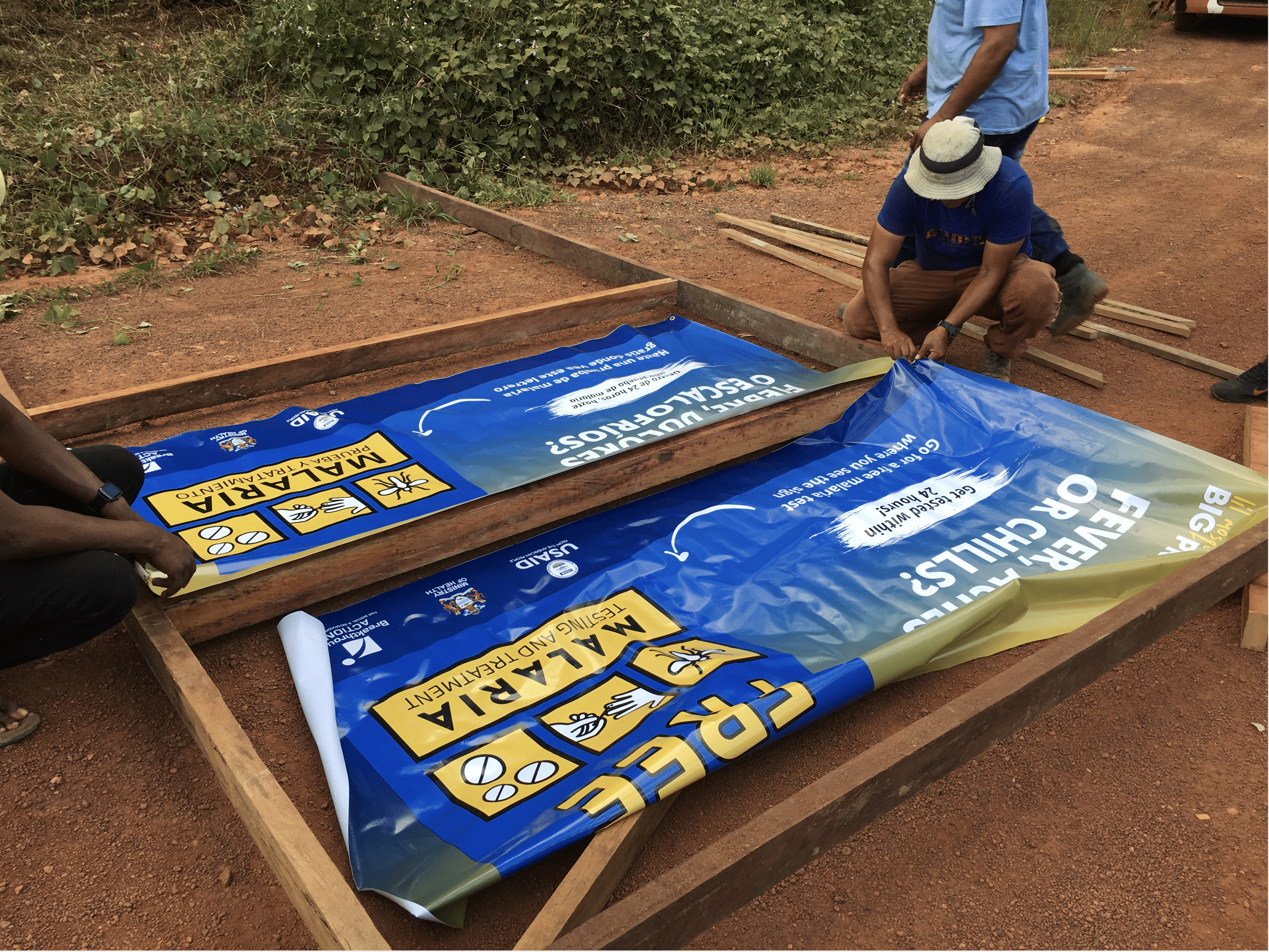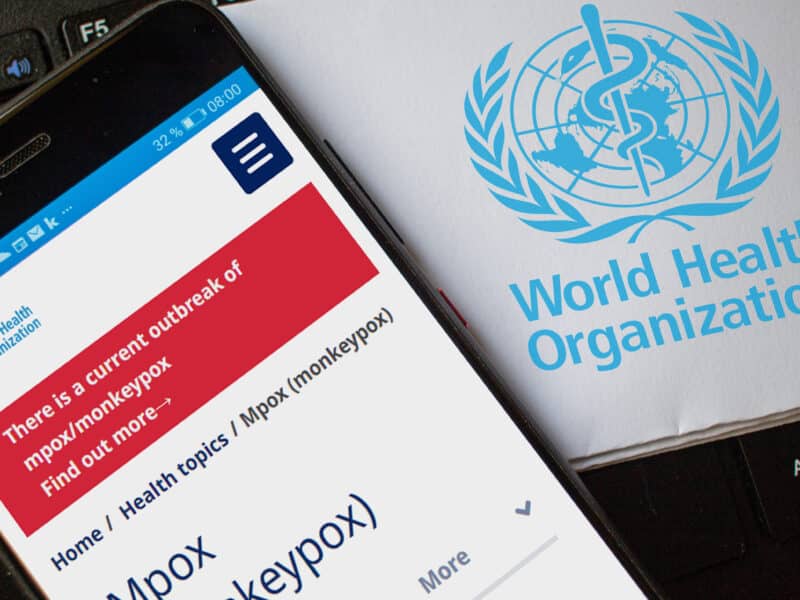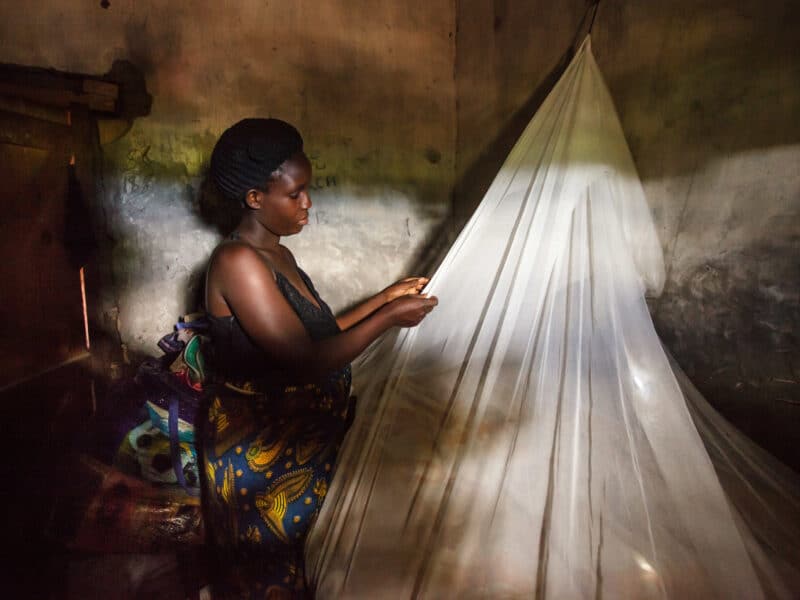New research from the Johns Hopkins Center for Communication Programs that studies what influences itinerant gold miners in remote stretches of Guyana to seek care for malaria suggests that addressing specific knowledge gaps and stimulating conversations about malaria could encourage miners to be promptly tested and treated for the disease to prevent serious illness.
The findings, published last month in Malaria Journal, are based on a 2019 survey of 1,685 gold miners conducted by CCP’s Breakthrough ACTION project.
Since the survey was completed, CCP has helped scale up an initiative – in collaboration with Guyana’s government – to develop accessible health services for miners and design a mass and social media campaign to create demand for malaria services, including ensuring a greater understanding of the importance of prompt care-seeking for fevers, where to go for testing and the importance of completing a specific course of medication to clear the disease.
“We needed to understand what was driving miners’ malaria-related behavior so we could create targeted interventions to change them,” says CCP’s Bolanle Olapeju, MBBS, PhD, who led the research. “Getting a full grasp on miners’ knowledge, attitudes, perceptions and recent discussions with others about malaria allowed us to shape efforts to get miners the care and information they need to prevent malaria.”
According to the 2020 World Malaria Report, Guyana – home to more than 780,000 people – reported more than 20,000 cases of the mosquito-borne disease in 2019, an increase of more than 40 percent since 2015. Malaria burden is particularly high among remote and mobile gold mining populations, and evidence suggests that malaria surges are driven by rising gold prices and increased gold mining activities in areas that are prime breeding environments for mosquitoes. In addition, migrant and mobile mining populations are generally hard to reach with information and services because of the difficult terrain and remote locations.
It is known that people who recognize they are at risk and have confidence in themselves and in available services are more likely to be proactive in exercising healthy behaviors to address a disease threat. This study found that miners generally have relatively high perceptions of malaria severity, as well as relatively high self-confidence in their ability to protect themselves.
This would normally indicate favorable conditions for positive care-seeking, malaria testing and completing the course of approved treatment. On the other hand, this study also found that miners in Guyana had relatively low perceptions that others around them engaged in protective behaviors and reported relatively little communication with others about these issues.
Miners have relatively weak social ties, meaning they are unlikely to talk about malaria prevention behaviors, which removes positive motivation to act. The itinerant nature of the miners’ work could keep them from making strong social ties.
After analyzing the results of the study, Breakthrough ACTION created a multi-channel social and behavior change campaign to increase miners’ knowledge of malaria transmission and symptoms, encouraging positive beliefs about malaria testing, promoting evidence about the effectiveness of testing, and providing reminders of how quick and easy it is to get a malaria test with the community case management initiative.
The “Little Mosquito, Big Problem” campaign was launched in 2020, but the pandemic limited Breakthrough ACTION to social media work. As restrictions eased, the campaign used radio skits, advertising on television news programs and ads at cricket matches to remind miners how they could maintain their health – and how others were already doing so.
“We wanted to help miners understand where they could go for testing and to stimulate buzz and conversations on the topic,” Olapeju says. “We needed to make prompt care-seeking for fevers the norm and make it easy for miners to get the help they need.”
Volunteer malaria testers agree. Said one of them, Henrito: “There are a lot of sicknesses that mimic malaria so I advise anyone having symptoms to take a test.”
Olapeju says the research could also apply to similar populations in neighboring countries, informing efforts to eliminate malaria regionally. Breakthrough ACTION will be conducting a follow-up study in April to see how well the campaign has worked.
“Malaria care-seeking and treatment ideation among gold miners in Guyana” was written by Bolanle Olapeju, Camille Adams, Sean Wilson, Joann Simpson, Gabrielle C. Hunter, TrishAnn Davis, Lyndsey Mitchum, Horace Cox, Kashana James, Jennifer Orkis and J. Douglas Storey.





